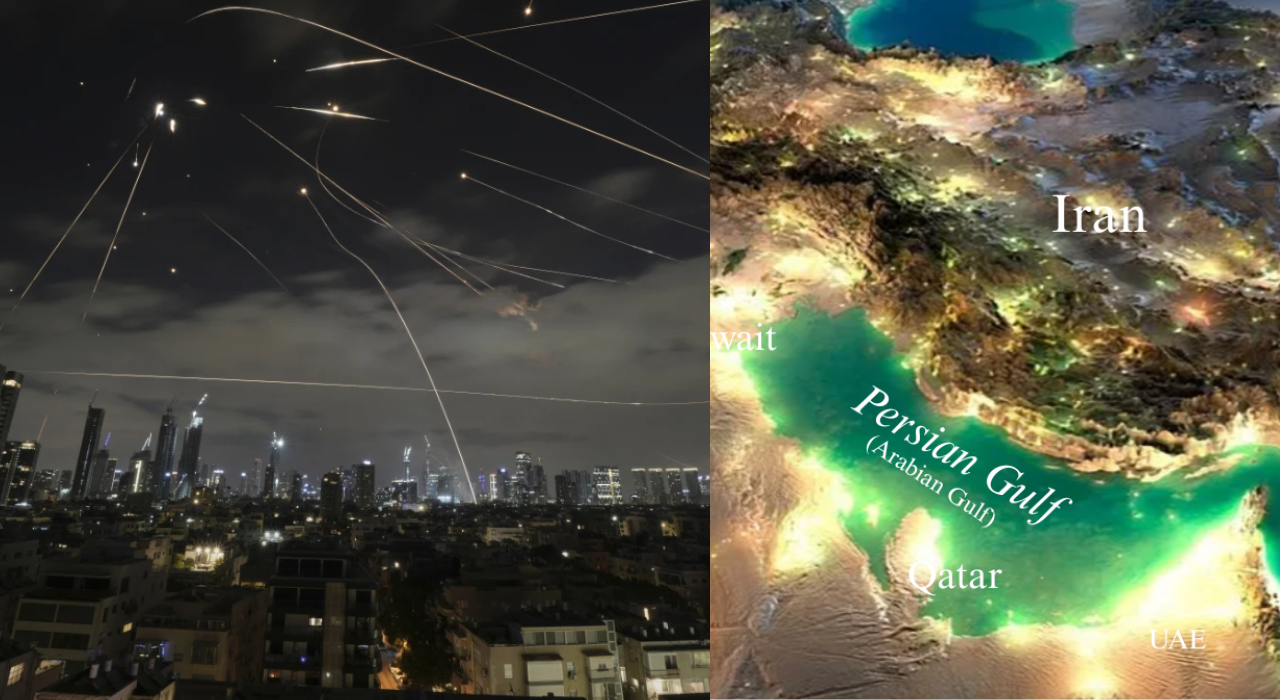Trump Threatens New Tariffs On Russian Oil, Will It Impact India's Supply?

Join our WhatsApp Community to receive travel deals, free stays, and special offers!
- Join Now -
Join our WhatsApp Community to receive travel deals, free stays, and special offers!
- Join Now -
US President Donald Trump has indicated potential complications for Russian oil trade unless Moscow reaches an agreement on the Ukraine conflict soon. On Sunday, the American leader threatened to levy secondary tariffs ranging from 25-50 per cent on Russian oil buyers because he feels Moscow is blocking his efforts to end the war in Ukraine.
"If Russia and I are unable to make a deal on stopping the bloodshed in Ukraine, and if I think it was Russia's fault ... I am going to put secondary tariffs on oil, on all oil coming out of Russia...That would be, that if you buy oil from Russia, you can't do business in the United States...there will be a 25% tariff on all oil, a 25- to 50-point tariff on all oil," Trump said.
The possibility of new US sanctions on Russian energy companies poses the risk of inflation in developing economies as oil prices soar to unprecedented levels. It especially poses a worry for India as Moscow is one of New Delhi's biggest crude oil suppliers.
India's crude oil imports crossed 5 million barrels per day (bpd) in March 2025, the highest monthly volume in over 15 years, according to data from commodity market analytics firm Kpler. If this, around 30 percent of it is imported from Russia.
India's Crude Oil Imports In March 2025 (Source: Kpler data)
- Russia: 1,864 thousand bpd
- Iraq: 920 thousand bpd
- Saudi Arabia: 565 thousand bpd
- UAE: 424 thousand bpd
- US: 289 thousand bpd
- Nigeria: 222 thousand bpd
- Kuwait: 110 thousand bpd
- Angola: 150 thousand bpd
- Brazil: 91 thousand bpd
- Ecuador: 65 thousand bpd
- Columbia: 63 thousand bpd
- Venezuela: 61 thousand bpd
- Congo: 58 thousand bpd
- Qatar: 36 thousand bpd
- Ghana: 34 thousand bpd
- Oman: 33 thousand bpd
India's Dependency On Russian Oil
Over the past few years, after the start of the Russia-Ukraine conflict, India has reduced its reliance on Middle Eastern and African oil in favor of a cheaper and abundant supply from Moscow. Refiners have enjoyed bigger profits due to the cheaper supplies. In fact, New Delhi's crude oil import from Moscow reached an eight-month high in March, despite sanctions imposed on Russian oil entities by the outgoing Biden administration in the US.
According to Kpler data, India's import of Russian crude jumped to around 1.9 million barrels per day (bpd) in March - marking an increase of 480 thousand bpd month-on-month and 300 thousand bpd year-on-year. In February, India imported 1.47 million barrels of crude oil from Russia.
Trump's Threat And Oil Prices
Trump's remark pushed benchmark futures up, with West Texas Intermediate surging 3.1 per cent on Monday, the biggest gain in almost 11 weeks. Prices slipped a bit on Tuesday, but steadied in thin trading on Wednesday. Brent futures were unchanged at $74.49 a barrel after slipping 0.4 per cent on Tuesday. US West Texas Intermediate crude futures rose 3 cents to $71.23 after dropping 0.4 per cent.
What Happens If the US Goes Ahead With Its Threat?
America is India's top trading partner, so under a scenario of "secondary tariffs" for buyers of Russian oil, India's oil supply is likely to be adversely affected and New Delhi may have to look for alternative supplies, according to a report by Bloomberg.
"Traditional sanctions have created enough uncertainty," the report quoted Warren Patterson, the head of commodities strategy for ING Groep NV in Singapore, as saying.
"The idea of secondary tariffs only intensifies this uncertainty, given that it is a new tool. Buyers need to decide whether the advantages of picking up discounted crude outweigh the potential hit on its economy from additional tariffs," he added.
With Trump's threat looming, Indian refiners have rushed to the market to seek crude supply. The Bloomberg report said state-owned Bharat Petroleum Corp and Hindustan Petroleum Corp are seeking additional supplies for May arrival from regions such as the Middle East, North Sea and Mediterranean.
The emergence of such prompt demand for non-Russian cargoes likely signals concerns around India's ability to receive all the barrels refiners had earlier purchased from Moscow, the report said.
India's Strategy
Eager to keep importing cheap crude from Russia, oil refiners in India have been working with merchants, shippers and other middlemen to rebuild supply chains following Biden's sanctions. Last month, Bloomberg reported that Indian refiners were reconfiguring the existing networks with selling entities, tankers and insurance providers that are not on Washington's blacklist.
India is also actively diversifying its crude sources by increasing imports from other countries, including Angola, Brazil, and West African to reduce dependency on Russian oil. While New Delhi's import of Russian barrels increased, Indian refiners also imported two-thirds more US crude in March than in February.
India imported 289,000 barrels per day of US crude in March, up from 146,000 bpd in February, according to Kpler data.
Experts believe that India's strategy of diversifying its oil supplies may help protect against any impact.
"The big question is, will these repeated shocks end up structurally reducing Indian appetite for Russian crude? I have my doubts, as long as the economics works," Vandana Hari, founder of Vanda Insights in Singapore, told Bloomberg.
"It's a bluff, a bargaining ploy on the part of Trump. But refiners need to prepare, they can't rely on hunches, no matter how bizarre and unlikely a supply threat."
What's Your Reaction?
 Like
0
Like
0
 Dislike
0
Dislike
0
 Love
0
Love
0
 Funny
0
Funny
0
 Angry
0
Angry
0
 Sad
0
Sad
0
 Wow
0
Wow
0






















































